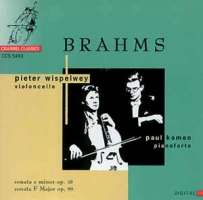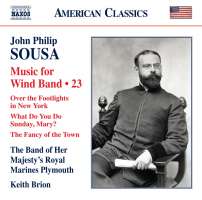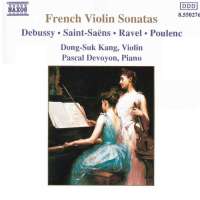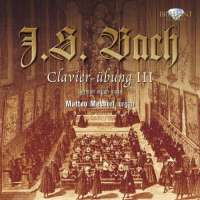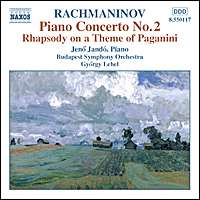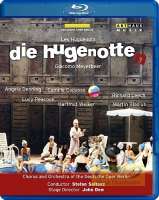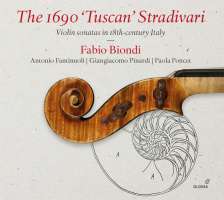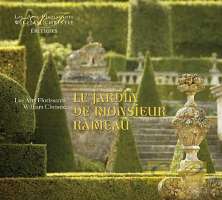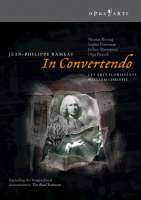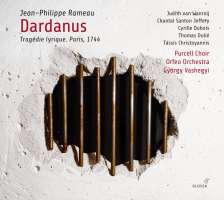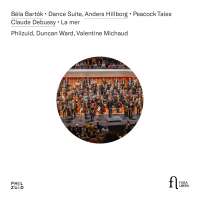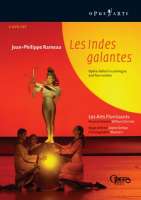
kompozytor
różni kompozytorzy
tytuł
La famille Rameau
pełny spis kompozytorów
Debussy, Claude;
Rameau, Jean-Philippe;
Rameau, Claude;
Tapray, Jean-François;
Rameau, Lazare;
Rameau, Claude-François
Rameau, Jean-Philippe;
Rameau, Claude;
Tapray, Jean-François;
Rameau, Lazare;
Rameau, Claude-François
wykonawcy
Taylor, Justin
nr katalogowy
Alpha 721
opis
During his lifetime, Rameau enjoyed a glittering reputation and was admired by all Europe, while Debussy’s Hommage à Rameau proves that his fame survived down the centuries. But what do we know about the rest of the Rameau family? After a highly acclaimed album devoted to the Forqueray family (ALPHA247, Gramophone Editor’s Choice, Choc of the year 2016 in Classica, Grand Prix de l’Académie Charles Cros), our harpsichordist-genealogist Justin Taylor sets out on the trail of Jean-Philippe’s son Claude-François and his nephew Lazare. To be sure, Rameau’s genius dwarfs all around him, as is demonstrated by such pieces as La Livri, La Poule and L’Égyptienne, not to mention the magnificent Nouvelle Suite in A minor, but the music of his descendants has its own interest. Justin Taylor introduces us to a work by Claude-François Rameau (La Forqueray) and the Sonata no.1 in E major by Lazare Rameau. He switches from the splendid harpsichord of the Château d’Assas (a two-manual instrument of the first half of the eighteenth century, attributed to the Lyon-based maker Donzelague) to the 1891 Érard piano of the Musée de la Musique in Paris for Debussy’s tribute to his great predecessor.
• Rameau, C-F: La Forqueray
• Rameau, C-F: Menuet barosais
• Rameau: L'Egyptienne
• Rameau: La poule
• Rameau: La Rameau in B flat major
• Rameau: Le rappel des oiseaux
• Rameau: Les Cyclopes
• Rameau: Les tendres plaintes
• Rameau: Les Triolets
• Rameau: Nouvelles Suites de Pièces de Clavecin
• Rameau: Premier Livre de pieces de clavecin
Works: • Debussy: Hommage à Rameau (No. 2 from Images pour piano - Book 1)
• Rameau, C-F: La Forqueray
• Rameau, C-F: Menuet barosais
• Rameau: L'Egyptienne
• Rameau: La poule
• Rameau: La Rameau in B flat major
• Rameau: Le rappel des oiseaux
• Rameau: Les Cyclopes
• Rameau: Les tendres plaintes
• Rameau: Les Triolets
• Rameau: Nouvelles Suites de Pièces de Clavecin
• Rameau: Premier Livre de pieces de clavecin
nośnik
CD
gatunek
Muzyka klasyczna
producent
Alpha
data wydania
31-03-2021
EAN / kod kreskowy
3760014197215
Produkt nagrodzony:
Classica: 'Choc de Classica' (2021)
France Musique: 'Le Choix de France Musique' (2020)
France Musique: 'Le Choix de France Musique'

(Produkt nie został jeszcze oceniony)
cena 79,00 zł
lubProdukt na zamówienie
Wysyłka ustalana indywidualnie.
Darmowa wysyłka dla zamówień powyżej 300 zł!
Darmowy kurier dla zamówień powyżej 500 zł!
sprawdź koszty wysyłki






